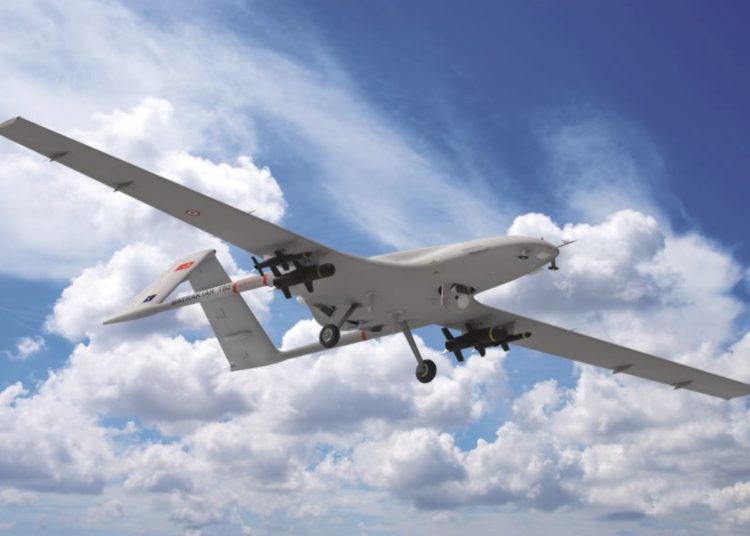Abdullah Bozkurt
A Turkish judge has ordered Twitter to block access to a posting by Nordic Monitor that linked to an article on systematic failures and troubles with drones that were domestically manufactured by Baykar, whose owners include Selçuk Bayraktar, President Recep Tayyip Erdoğan’s son-in-law.
The revelations, documented in a classified Turkish military document, were published by Nordic Monitor on May 11, 2019 and exposed how the government covered up problems with the Bayraktar drone system when ground data terminals frequently malfunctioned, with the problem resuming shortly after they returned to service following repair.
Erdoğan’s son-in-law never challenged the documents or substance of the report, but instead he — through the Turkish president’s lawyer, Ahmet Özel — claimed in his legal complaint with the Istanbul 1st Criminal Court of Peace judge on May 17, 2019 that his rights had been violated.
Judge Mustafa Kolay issued his verdict on the same day under decision No. 2019/3966, agreeing with the plaintiff’s claim that the article contained statements insulting Bayraktar and as such his rights had been violated. The article identifies Erdoğan’s son-in-law only once as the chief technology officer for Baykar, which manufactures the drones.

According to a priority message secretly communicated to the General Staff by the 2nd Army Command on July 15, 2016, the Bayraktar drone systems had often been hit with problems, hampering counterterrorism operations in Turkey’s Southeast. The secret report detailed several field operations that were negatively impacted by the failure of the Bayraktar drones.

In one case recorded on June 26, 2016, the military was conducting operations in Hakkari province’s Yüksekova district, and the ground data terminals failed to communicate with the drones. A team of technicians from Savronik, a Turkish defense contractor, and the Undersecretariat for the Defense Industry (SSM) were brought to Yüksekova to repair the terminal. They failed to fix it and instead took the antenna system back to the service center in Eskişehir province. The military was later told that the antenna interface board was faulty and needed replacement, which would take 45 days.
The classified report was drafted by Gökhan Dülgergil, a captain in intelligence, and signed by Malatya Garrison Commander Maj. Gen. Avni Angun. The report was never made public, and the problems were swept under the rug on the orders of Erdoğan.
In addition to Nordic Monitor’s tweets, the judge also ordered a block on other postings on Twitter that mentioned the article.

The request for the order to block the content was made under Articles 8 and 9 of revised Law No. 5651, also known as the Internet Law. Article 8(A) of the law referenced in the petition refers to the “removal of content and/or blocking of access in circumstances where delay would entail risk.” Article 9, which covers the infringement of personal rights, allows plaintiffs to bring lawsuits against Internet firms and service providers to force them to remove or block the content.
The Turkish Internet Law was criticized for its shortcomings by the Council of Europe’s Venice Commission, which said in an opinion on June 15, 2016 that the law was not in line with European norms. “The only measure provided for in Law No. 5651 is the measure of access-blocking/removal of content which is the most severe measure possible on the Internet,” the commission emphasized. It added that “[the] Law does not provide for any other measure, less intrusive than blocking/removal, as for instance, requirement of ‘explanation’ from the interested party [content provider, website owner, etc.], ‘response’, ‘correction’, ‘apology’, ‘content renewal’, ‘access renewal’ etc.”
On Jan. 11, 2010 the Organization for Security and Co-operation in Europe (OSCE) representative for freedom of the media published a report on the Internet Law recommending, on the basis of legal and procedural deficiencies identified, that the government urgently bring Law no. 5651 in line with international standards on freedom of expression or otherwise consider abolishing the law.
Thousands of social media accounts and websites that are critical of Erdoğan and the government have been blocked by courts that are accused of acting on political orders from the authorities. The rule of law was effectively suspended in Turkey when the judiciary was completely subordinated to the executive branch following a mass purge of more than 4,000 judges and prosecutors, or one-third of the entire judicial staff in Turkey.
According to Twitter’s latest Transparency Report, which covered the July 1, 2018-Dec. 31, 2018 period, Turkey issued 597 court orders for removal requests, which amounted to 52 percent of censorship requests worldwide in the form of court judgments. This shows how the Turkish judiciary has been politicized and subordinated to the executive branch of government. Twitter enforced only 4 percent of the removal requests originating from Turkey in the same period.












